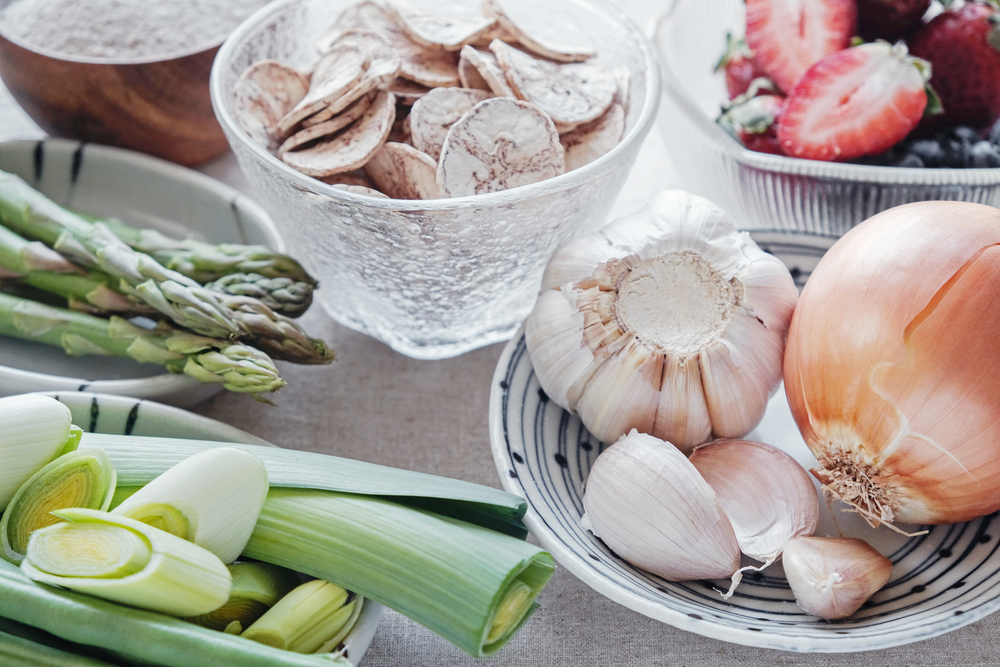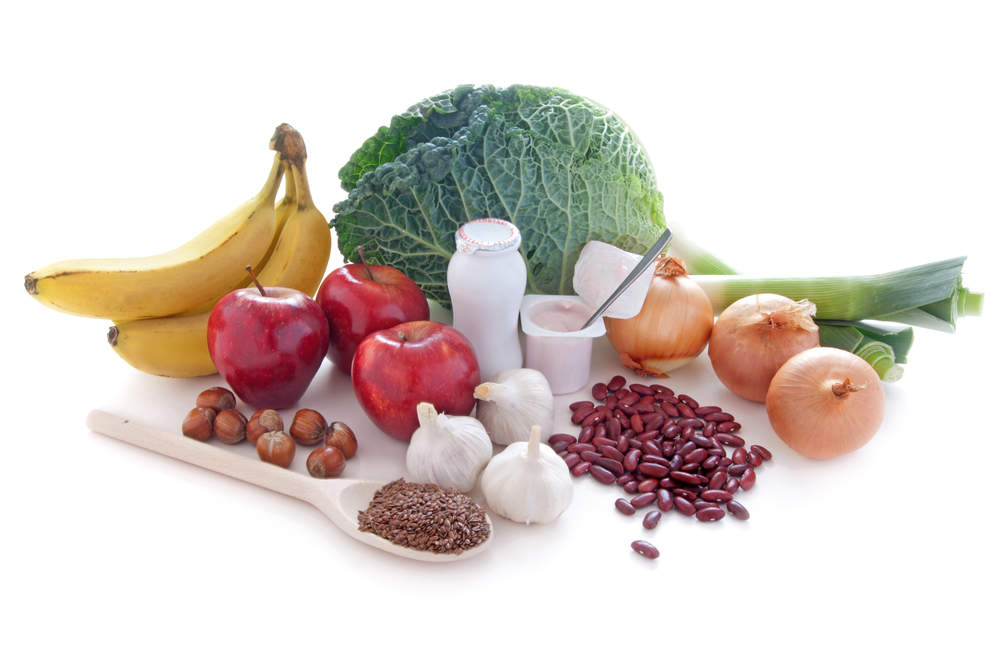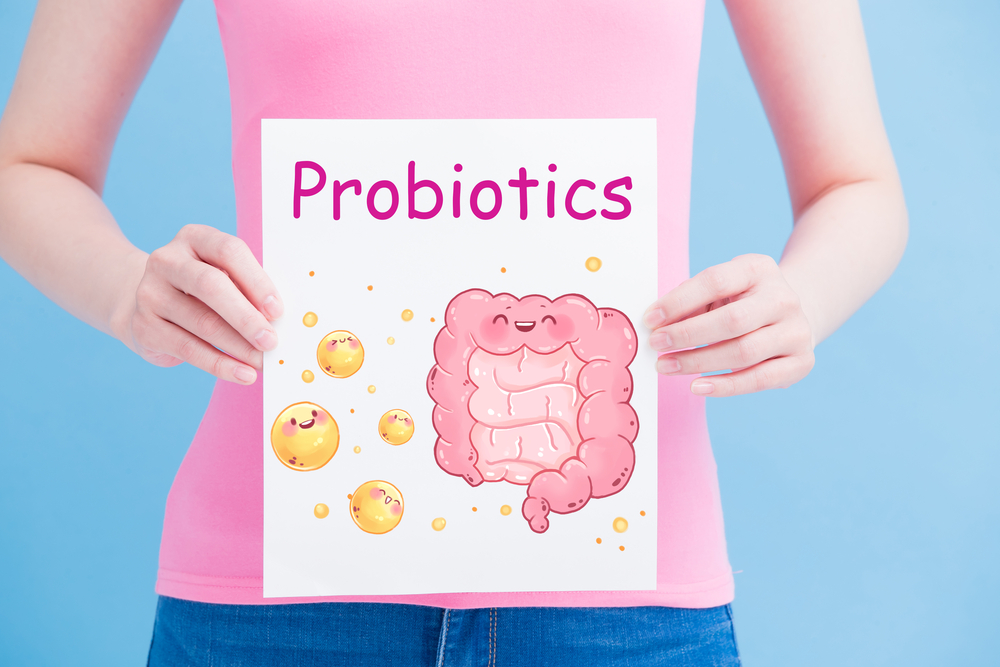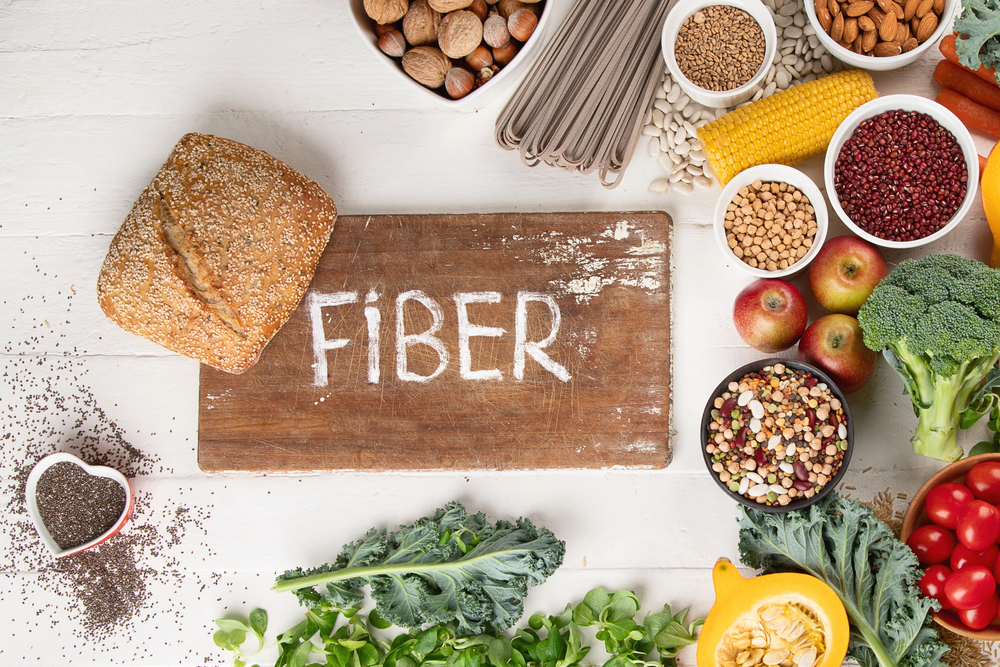
Prebiotics: the best food for your intestinal bacteria

You are probably already familiar with the fact that fiber is good for healthy digestion. But did you also know that prebiotic fibers, a specific category of fibers, are extra beneficial for your intestines? Prebiotics are dietary fibers that are not digested by our body, but instead serve as food for probiotics, the good bacteria in our intestines. Prebiotics occur naturally in foods such as vegetables, fruit, bread, grain products or legumes, but supplements containing prebiotics are also available.
In this blog we delve deeper into the question: what do prebiotics do and why are these fibers so important? In addition, we will tell you more about prebiotic foods, so that you can easily add them to your diet and benefit from the benefits.
What does prebiotics do?

Prebiotics have been increasingly recognized as an important part of a healthy diet, mainly due to their positive effects on gut health. These prebiotic dietary fibers are not digested by our digestive system, so they reach the large intestine intact. In the large intestine they serve as food for the beneficial intestinal bacteria. In this way they stimulate the growth and activity of these bacteria. This ensures that more good bacteria are created, allowing them to do their work better and providing various health benefits.
One of the primary benefits is the strengthening of intestinal flora, which is essential for a effective immune system. The beneficial bacteria form a protective layer along the intestinal wall, which helps prevent harmful bacteria and pathogens from entering the body. This reduces the risk of infections and certain intestinal-related problems, such as diarrhea and constipation.
In addition, prebiotics can be beneficial for people with diabetes metabolic disorders such as type 2 diabetes mellitus or cardiovascular disease. Improving the composition of the intestinal microbiota through the intake of prebiotics (and probiotics) can lead to better insulin sensitivity and reduced cholesterol levels. These effects can be supportive in the management of type 2 diabetes, cardiovascular disease, and in the fight against obesity.
Finally, prebiotics contribute to healthy bowel movements. This is essential for removing waste products from the body and maintaining optimal intestinal health.
Types of prebiotics

Prebiotics are dietary fibers that fuel the beneficial bacteria in our gut, playing a crucial role in maintaining our gut health and overall well-being. The most common types of prebiotics are inulin, fructo-oligosaccharides (FOS), pectin, and beta-glucans.
Inulin
Inulin is a type of fiber that belongs to a group of polysaccharides known as fructans. It is not digested or absorbed in the intestines. Instead, it serves as food for the bacteria in the large intestine, especially bifidobacteria and lactobacilli, which are important for healthy intestinal flora.
Fructo-oligosaccharide (FOS)
FOS are short chain sugars that occur naturally in many of the same vegetables as inulin. They have a similar effect on gut health by encouraging the growth of beneficial bacteria and can aid in mineral absorption and reduce the risk of certain intestinal diseases. FOS are also found in grains and are a popular ingredient in nutritional supplements due to their prebiotic properties.
Pectin
Pectin is a soluble fiber best known for its use in jams and jellies because of its gel-forming properties. But pectin also plays an important role in intestinal health. It is fermented by intestinal bacteria, resulting in the production of short-chain fatty acids that can promote the health of the intestinal lining and reduce the risk of inflammatory diseases.
The beta-glucan
Beta-glucans are polysaccharides found in the cell walls of grains, such as oats and barley, as well as in mushrooms, algae, and some yeasts. They have a wide range of health benefits, including lowering cholesterol, improving heart health, and supporting the immune system. In the intestines, beta-glucans stimulate the growth of beneficial bacteria and can help regulate blood sugar levels through their influence on glycemic response.
By eating a diet rich in these prebiotics, you can support the health of your gut flora, which in turn contributes to better overall health. It's important to eat a varied diet because different prebiotics feed different types of healthy bacteria, leading to a diverse and robust microbiome.
10x prebiotic food
Taking prebiotic foods has many health benefits. Consuming a variety of prebiotic foods, both in raw and cooked form, can help you get a wide range of fiber.
We have put together a top 10 of our favorite prebiotic foods!
- Oatmeal
Oatmeal is not only a nutritious and filling breakfast that gives you energy to start the day, but it is also extremely good for your gut health. This is because oatmeal is rich in beta-glucans, a type of soluble fiber with powerful prebiotic properties.
It also has others health benefits. The beta-glucans in oatmeal can help lower LDL cholesterol, often known as "bad" cholesterol. The slow digestion of complex carbohydrates and the presence of beta-glucans ensure a gradual release of glucose into the blood, which helps prevent spikes in blood sugar levels.
So start your day with delicious overnight oats (unheated dish) or oatmeal porridge!
- asparagus
Asparagus is known as a good source of prebiotics, thanks to its rich content of both inulin and fructooligosaccharides (FOS). This combination makes asparagus particularly valuable for promoting healthy intestinal flora. Many people eat this vegetable heated, but it can also be eaten raw as a snack with a dip or in a pasta salad.
- Jerusalem artichoke
Jerusalem artichoke is often considered an excellent source of prebiotics due to its high inulin content. 100 grams of Jerusalem artichokes contains approximately 2 grams of dietary fiber, a large part of which comes from inulin. In addition to their prebiotic benefits, Jerusalem artichokes are also a good source of iron, potassium and vitamin B1.
You can add Jerusalem artichokes to your daily diet in different ways. Add them raw to your salads or cook, bake or roast them as a delicious side dish.
- Garlic
Garlic is not only known as a seasoning, but it also offers numerous health benefits. As a natural source of inulin and fructo-oligosaccharides, garlic plays a role as a prebiotic by stimulating the growth of beneficial bifidobacteria in our intestines, while preventing the development of harmful bacteria. Since it's easy to add to dishes, it's one of our favorite prebiotics.
- Leek
Leek belongs to the onion family and offers similar benefits to the onion. Just like the onion, it is a source of inulin and stimulates the growth of good intestinal bacteria. In addition to its prebiotic benefits, leeks are also rich in vitamins A, C and K, and contain important minerals such as iron and manganese. It is a healthy vegetable that is delicious on a wrap, sandwich or as a seasoning in a pasta.
- Pistachio
Pistachios are loved by many people for their unique taste. But did you also know that they are a good source of dietary fiber? These nuts contain no less than 9.4 grams of fiber per 100 grams of nuts. In addition to dietary fiber, pistachios are rich in healthy fats, mainly unsaturated fatty acids, which are beneficial for the heart. They also contain antioxidants, including lutein, beta-carotene and vitamin E.
- Call
Apples are not only very tasty, but also very good for your (intestinal) health. They contain a lot pectin, which has prebiotic properties. One of the main benefits of pectin is its ability to stimulate the production of butyrate, a short-chain fatty acid produced in the colon when intestinal bacteria ferment pectin. Furthermore, the pectin in combination with polyphenols (which are also found in apples) ensures better results digestion and fat digestion.
Choose an apple as a snack or add it to your salad or breakfast and experience the benefits for your intestines.
- Vacant
Bananas are indispensable in our top 10 favorite prebiotic foods. Unripe bananas contain significant amounts of resistant starch, a type of carbohydrate that is not broken down in the small intestine. This resistant starch functions as a prebiotic; it feeds beneficial intestinal bacteria such as Bifidobacterium, which in turn produce short-chain fatty acids such as butyrate. Ripe bananas also contain fructo-oligosaccharides and inulin, albeit in smaller amounts.
- Lentils
Lentils are an excellent source of GOS (Galacto-oligosaccharide), a form of prebiotic dietary fiber. In addition, lentils often contain resistant starch (RS). This is a form of starch that is not absorbed into our body and therefore ends up unchanged in the large intestine, where it serves as food for the intestinal bacteria.
To consume lentils safely, it is important to cook them properly. This means that they must first be washed thoroughly and then boiled in clean water until soft. This process not only ensures the breakdown of anti-nutrients, but also makes the lentils more digestible and their nutrients easier to absorb. Then add them to your salad or make fresh lentil soup!
- Ui
Onion is rich in the prebiotic fibers inulin and fructo-oligosaccharides. They not only feed the beneficial bacteria, but also inhibit the growth of unfavorable bacteria. Moreover, these fructo-oligosaccharides can immune system strengthen.
By adding onion to dishes such as soup and casseroles you not only add flavor, but you also contribute to a balanced intestinal flora and healthy digestion.
Side effects of prebiotics
So far, the use of prebiotics has no health disadvantages. However, an excess of prebiotics can lead to digestive complaints such as bloating, gas, diarrhea or constipation in some people. These side effects are usually the result of the fermentation of prebiotics by the intestinal bacteria. When prebiotic intake is suddenly increased, the body can sometimes have difficulty adapting to the increased amount of fermented substances, leading to discomfort.
Some people are more sensitive to these effects than others. The effects may also differ per type of prebiotic. The faster the fermentation of the prebiotic, the greater the chance of complaints.
Give your intestinal bacteria a boost

Are you not getting enough prebiotic food? Then you can also take supplements such as: Fibre Select inDetoxionis use fiber with psyllium husk to feed your healthy intestinal bacteria with fiber. If you do not eat much prebiotic food, it is advisable to gradually increase the amount so that your body can get used to it.
Take 2 capsules of Detoxionis with a glass of water before lunch and 1 capsule before dinner. Take 5 grams of Fiber Select 3 times a day by dissolving it in water, yogurt or another drink. Do you suffer from flatulence or bloating? Then build up the amount of prebiotics even more slowly.
